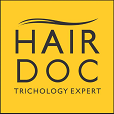
To avoid hair damage after a shower, follow these tips and practices:
- Gentle Washing: Use a mild, sulfate-free shampoo and conditioner. Avoid aggressive scrubbing or using hot water, as it can strip your hair of its natural oils.
- Cool Water Rinse: Finish your shower with a cool water rinse. Cold water helps seal the hair cuticles, making them less prone to damage and frizz.
- Pat Dry: Gently pat your hair dry with a microfiber towel or an old t-shirt. Avoid rubbing vigorously, as this can lead to friction and breakage.
- Detangling: Use a wide-tooth comb or a detangling brush to gently remove tangles. Start from the ends and work your way up to prevent unnecessary stress on your hair.
- Reduce Heat Styling: Minimize the use of heat styling tools like blow dryers, straighteners, and curling irons. If you must use them, apply a heat protectant spray first and use the lowest heat setting necessary.
- Air Drying: Allow your hair to air dry whenever possible. If you need to speed up the drying process, use a diffuser attachment on your blow dryer with low heat and airflow settings.
- Avoid Tight Hairstyles: Avoid tight ponytails, braids, or hairbands that can cause stress and breakage. Opt for looser hairstyles to prevent unnecessary tension on the hair shaft.
- Use Silk or Satin Pillowcases: Swap out cotton pillowcases for silk or satin ones. These materials create less friction, reducing the risk of hair breakage and frizz while you sleep.
- Regular Trims: Schedule regular haircuts every 6-8 weeks to remove split ends and maintain healthy hair.
- Deep Conditioning: Apply a deep conditioning treatment once a week to restore moisture and strengthen your hair.
- Choose Hair-Friendly Accessories: Use hair accessories like clips, pins, and ties that are gentle on your hair and won’t cause snags or breakage.
- Protective Styling: Consider protective hairstyles like braids, twists, or buns that keep your hair tucked away and reduce exposure to environmental stressors.
- Healthy Diet: A balanced diet rich in vitamins, minerals, and protein supports overall hair health. Include foods like nuts, seeds, fish, leafy greens, and eggs.
- Hydration: Stay hydrated by drinking plenty of water, as this also contributes to the health of your hair.
- Limit Chemical Treatments: Minimize the use of harsh chemical treatments like coloring, perming, and straightening, as they can weaken and damage your hair over time.
Remember, consistent care and patience are key to maintaining healthy hair. If you’re experiencing persistent hair issues, consult a professional hairstylist or dermatologist for personalized advice and solutions.
Regards,
Dr. Satish Vaishnav
Hair Doc, Trichology Expert, Hair Clinic
Thane, Pune, Chhatrapati Sambhajinagar, Pimpri-Chinchwad



